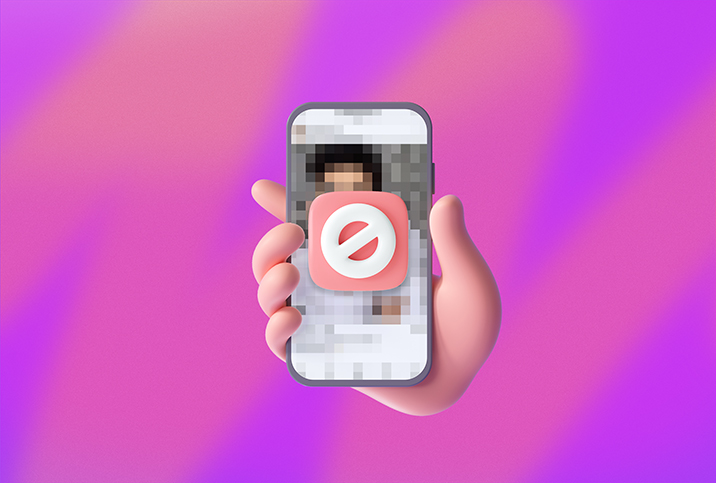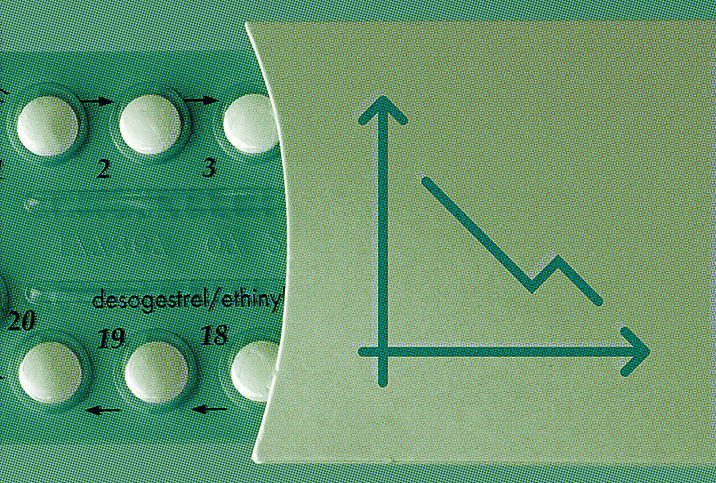Dispelling Insta Influencers' Fearmongering About Birth Control

Since its release 60 years ago, little has been as polarizing as the birth control pill. But with the rise in popularity of "natural" health and wellness influencers, the pill's reputation has faltered even more.
Just take a cursory scroll on social media and you'll find several accounts with large followings spreading sensationalist—and often incorrect—information about birth control. One of the most commonly spread myths about the pill is that it gives you cancer. The reality isn't so straightforward (or scary).
Where the myth came from
The link between the birth control pill and cancer is a lot more complex than some "influencers" make it seem. In an attempt to scare women off the pill, they often cite the fact that the World Health Organization (WHO) classifies birth control pills as carcinogens, or substances that promote the formation of cancer. The WHO's International Agency for Research on Cancer (IARC) classifies the combined oral contraceptive pill as a Group 1 carcinogen, meaning there is sufficient evidence that it is carcinogenic to humans, which at face value sounds worrying.
But context is everything, so let's dig a little deeper into what the IARC's classification means.
The IARC classifies items based on how much research exists on their ability to cause cancer, but the groupings indicate only that something may cause cancer, not the actual measured risk. Of course, carcinogens don't cause cancer in all circumstances. Smoking cigarettes and breathing in secondhand smoke are both in Group 1, but they definitely don't pose an equal risk. The cancer risk from actively smoking cigarettes is much higher than the cancer risk from inhaling secondhand smoke.
It's important not to take the pill's classification out of context, which, unfortunately, many "wellness" influencers do to fearmonger. The fear of developing breast cancer is one of the main reasons for women to choose not to use birth control.
The link between the pill and cancer
Influencers' fearmongering about the pill is especially damaging because there is some truth to claims that the pill is linked with cancer, but they never tell the whole story.
"There is a slightly higher risk of breast cancer and cervical cancer in patients that take the pill, but the increased risk is just temporary," explained Vonne Jones M.D., a board-certified OB-GYN based in Houston.
Women who take the birth control pill have an 8 percent to 24 percent higher risk of breast cancer compared to women who've never taken the pill, but the overall risk among hormonal birth control users is still low, according to a study published in 2017 in the New England Journal of Medicine.
A 24 percent increased risk of breast cancer can sound concerning but remember it's a 24 percent increase of a very, very low risk. Again, context is everything.
Data analysis from more than 150,000 women across 54 studies also indicated the risk of breast cancer declined when women stopped taking birth control and there was no significant excess risk 10 or more years after they stopped taking the pill.
Everyone's risk profile is different, and your doctor should take yours into account when discussing the right contraceptive options for you.
"Natural estrogen and progestogen can stimulate the development, but mainly the progression, of some cancers, and hormonal contraceptives contain synthetic versions of these hormones," said Mel Davis-Hall, B.M.B.S., a general practitioner specializing in sexual and reproductive health, and clinical director at the Lowdown, a contraception review, advice and prescriptions platform based in London.
"However, the role of these hormones in carcinogenesis [development of cancer] is complicated, and other factors definitely have a significant role to play," Davis-Hall continued.
Your risk of developing cancer depends on many other biological and lifestyle factors, including your age, family history, whether or not you smoke, your diet, how much you exercise and whether you've had children.
Everyone's risk profile is different, and your doctor should take yours into account when discussing the right contraceptive options for you. The WHO has an extensive document of guidelines for who should and shouldn't be on the pill.
Case in point: You may have heard the pill is not recommended for women with a family history of breast cancer. This is because women who have the BRCA1 or BRCA2 genetic mutations have a higher baseline risk of breast cancer compared to women who don't have these variants.
The pill can lower your risk of certain cancers
"[The pill] actually will decrease the risk of cancers more than increasing the risk," Jones said.
Several studies indicate the birth control pill can reduce your risk of ovarian, endometrial and colorectal cancers, something wellness influencers conveniently forget to mention when they post about the pill and cancer.
The pill's protective effects against ovarian cancer are greater the longer you stay on the pill, and remain for several years even after you've stopped taking it. Meanwhile, some studies suggest a 50 percent reduction in the risk of endometrial cancer (cancer of the lining of the uterus), a benefit that can last for up to 20 years after coming off the pill.
Jones, Davis-Hall and the WHO all agree the benefits of birth control outweigh the small risk of cancer.
"For most women, the benefits of taking the combined pill for protection against unwanted pregnancy outweigh the small increased risks of breast and cervical cancer, as well as the small increased risk of a blood clot [deep vein thrombosis]," Davis-Hall said.
"Some also use the combined pill due to the positive impact it can have on issues such as heavy or painful periods, acne or premenstrual syndrome," Davis-Hall added.
What this means for women who are on the pill
"Considering whether the benefits outweigh the risks depends on the individual and their medical history, as well as the acceptability of alternative contraceptive methods," Davis-Hall said. "This is why it's important to have an individualized discussion and plan from a trained healthcare professional if you have medical problems or concerns."
While women must be informed about birth control's potential risks, it doesn't help anyone to scaremonger and demonize a contraceptive on which so many people rely.
"It all comes down to education and empowering patients with the knowledge to determine if they are a candidate for birth control," Jones said.
Scary health clickbait can be hard to ignore, but remember that influencers don't have the qualifications to be handing out information (let alone advice) about birth control—or anything medical, for that matter. If you're concerned about any potential risks of the birth control pill, consult your OB-GYN or primary care physician.


















